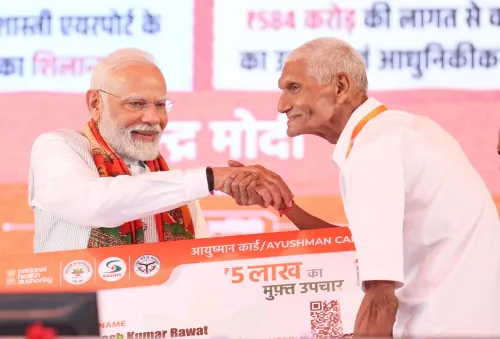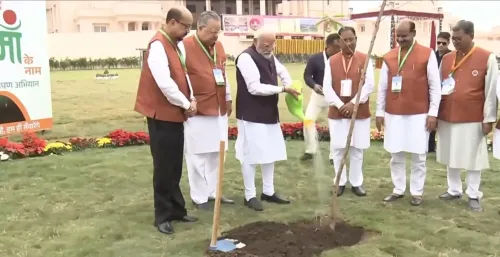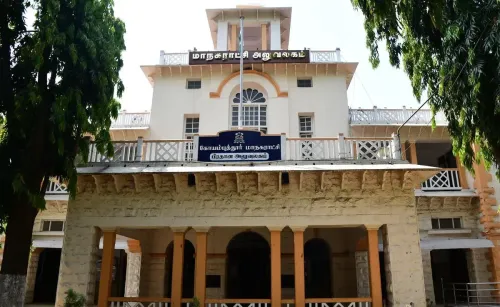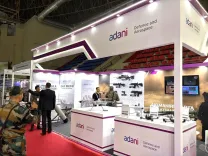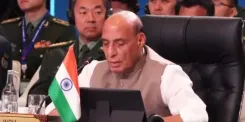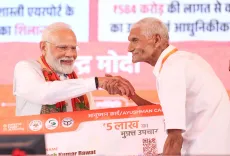PM Modi Initiates Major Steps for India to Achieve the World’s 2nd Largest Metro Rail Network
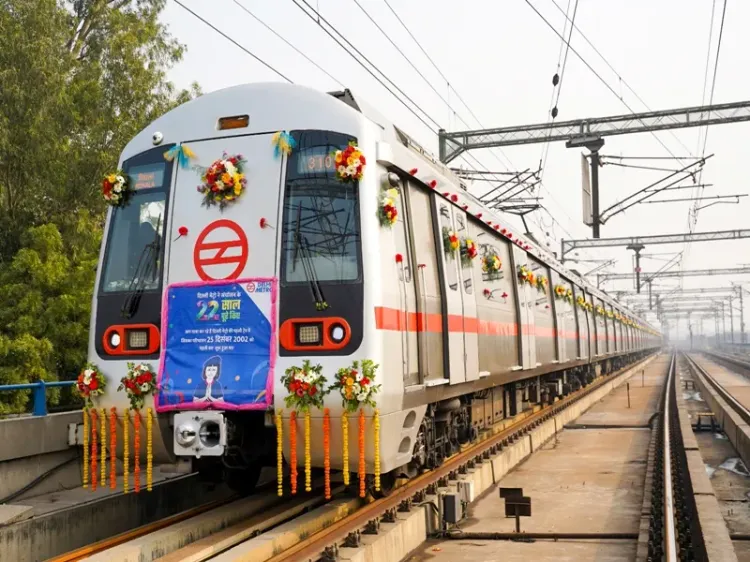
New Delhi, Jan 5 (NationPress) With Prime Minister Narendra Modi initiating the groundwork for an array of urban railway projects valued at more than Rs 12,200 crore in Delhi, India is set to progress towards becoming the second-largest metro rail network worldwide, as per a statement from the Ministry of Housing and Urban Affairs.
The nation has already established itself as home to the third-largest metro network globally, covering over 1,000 km across 11 states and 23 cities, offering millions a swift, convenient, and cost-effective travel option.
"On January 5, Prime Minister Narendra Modi made a significant advancement in the enhancement of India’s metro network, making it more robust and sophisticated by laying the groundwork for several development projects worth over Rs 12,200 crore in Delhi, including the inauguration of the 13 km segment of the Delhi-Ghaziabad-Meerut Namo Bharat corridor, which will significantly facilitate travel between Delhi and Meerut,” the official statement noted.
Additionally, the Prime Minister inaugurated a 2.8 km stretch of Delhi Metro Phase-IV, benefiting West Delhi, and laid the foundation for the 26.5 km Rithala-Kundli corridor, further enhancing connectivity between Delhi and Haryana.
These initiatives mark a major milestone in transportation, as metro systems now cover larger distances and cater to over 1 crore passengers daily.
With this expansion, India surpassed Japan in metro rail projects in 2022. Currently, India holds the third position globally in operational metro network length and is on the path to becoming the second-largest metro network in the world, the statement confirmed.
Key milestones in the history of metro systems in India include the establishment of the Delhi Metro Rail Corporation (DMRC) in 1995 aimed at delivering world-class mass rapid transit in Delhi.
The project gained traction through collaboration between the Central Government and the Government of Delhi.
The DMRC launched its first metro corridor between Shahdara and Tis Hazari in Delhi in 2002, paving the way for one of the largest metro networks in the country.
This was followed by the first segment of Namma Metro (Bengaluru Metro) being completed in 2011.
A significant milestone was the Chennai Metro expansion in 2017 with the opening of its initial underground section on the Green Line, stretching from Koyambedu to Nehru Park, marking a crucial development in Southern India's metro progress.
In 2020, Phase 1 of the Kochi Metro was finalized, with the Thykoodam-Petta stretch inaugurated, integrating Kerala into the expanding metro network in India.
The metro expansion in India has transcended traditional land transport, incorporating innovative solutions for future advancements. From under-river tunnels to driverless trains and water metros, India is establishing new benchmarks in modern urban mobility. The projects include:
* India’s inaugural under-water metro tunnel in Kolkata, where the Esplanade-Howrah Maidan section runs beneath the Hooghly River, inaugurated by PM Modi in 2024. This incredible achievement showcases India’s engineering prowess.
* The first-ever driverless metro service on the Delhi Metro’s Magenta Line, setting a new standard for automation in public transportation, was launched on December 28, 2020.
* Kochi, Kerala, became the first city in India to introduce a Water Metro Project, linking 10 islands around the city with electric hybrid boats. This innovative initiative ensures smooth connectivity, with the first boat launched in December 2021.
The approval of three metro rail projects, including the expansion of networks in Bengaluru, Thane, and Pune, represents another significant step in sustainable urban travel.
The Bengaluru Metro Project includes a 44 km expansion with two corridors, while the Thane Metro Project spans 29 km aimed at alleviating road congestion, and the Pune Metro Project covers a 5.5 km route to enhance urban mobility within the city.
These important advancements in metro systems across major cities have laid the groundwork for a vast and efficient metro network that connects millions today, as highlighted in the statement.
Alongside domestic developments, there is a growing international interest in India’s proficiency in metro rail systems.
The Delhi Metro Rail Corporation (DMRC) is currently managing the implementation of a metro system in Bangladesh and has extended consultancy services in Jakarta.
Countries such as Israel, Saudi Arabia (specifically Riyadh), Kenya, and El Salvador are also investigating potential partnerships with DMRC for their metro development endeavors, as the statement concluded.

